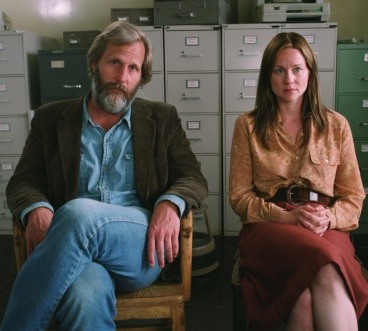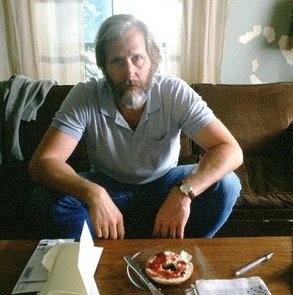 In the midst of my pre-transit-strike christmas shopping downtown, I took an evening breather at the Angelika to watch The Squid and the Whale, Noah Baumbach’s withering confessional film based on the divorce of his semi-famous parents (writer Jonathan Baumbach and film critic Georgia Brown) in Park Slope, circa 1986. The movie is mostly episodic vignettes in the life of a broken family and at times suggests a more misanthropic Me, You, and Everyone We Know. But it also feels scarily authentic and is probably one of the most convincing — and wryly funny — depictions of divorce I’ve ever seen on film, with particular kudos going to Jeff Daniels as the sad sack father in this outfit.
In the midst of my pre-transit-strike christmas shopping downtown, I took an evening breather at the Angelika to watch The Squid and the Whale, Noah Baumbach’s withering confessional film based on the divorce of his semi-famous parents (writer Jonathan Baumbach and film critic Georgia Brown) in Park Slope, circa 1986. The movie is mostly episodic vignettes in the life of a broken family and at times suggests a more misanthropic Me, You, and Everyone We Know. But it also feels scarily authentic and is probably one of the most convincing — and wryly funny — depictions of divorce I’ve ever seen on film, with particular kudos going to Jeff Daniels as the sad sack father in this outfit.
The story centers on 16-year-old Walt Berkman (Jesse Eisenberg of Rodger Dodger, playing Baumbach’s alter ego) and his younger brother Frank (Owen Kline), as they try to navigate the fallout from their writer parents’ collapsed marriage. (The title of the film refers to a display of an underwater death struggle at the American Museum of National History, which is referenced several times as an apt metaphor for the younger Berkmans’ plight.) Walt sides with his father Bernard (Daniels), a washed-up author-turned-college-professor, while Frank enlists under the standard of his up-and-coming writer mother Joan (Laura Linney), who has a profoundly irritating habit of calling her children “Pickle” and “Chicken.” As the parents war over the details of their absurdly complicated joint custody agreement, both Walt and Frank begin to display increasingly bizarre behavior, with Walt pilfering Pink Floyd’s eminently recognizable “Hey You” as his own composition for the school talent show and Frank taking on the habits of the “philistines” his pretentious father so loathes, namely drinking, masturbating in public, and idolizing his goofy semi-pro tennis coach (Billy Baldwin, playing it broad).
 With all due respect to the rest of the cast, most of the funniest (and most cringeworthy) scenes in the film are a result of Jeff Daniels’ terrific performance as paterfamilias-in-exile Bernard Berkman, one that should be on the warning label for anyone thinking of a career in academia. At once bombastic and deflated, Bernard is a terrible snob — he refers to Franz Kafka as “one of my predecessors” and can’t stop tossing off pithy and damning critiques of his son’s high school reading list (A Tale of Two Cities is “Minor Dickens,” for example.) At the same time, the wolves are at the door: Daniels’ eyes — hidden in the depths of his scruffy academic beard — have a furtive and hunted look, as if at any moment his wounded ego will cough up its last and he’ll collapse into a paroxysm of fatal self-loathing. Bernard basically deserves almost every indignity that’s heaped upon him here (with the possible exception of his wife’s serial infidelity, which, the movie suggests, may have originally turned him into this stunted, paralyzed pretender), but Daniels’ haunted resignation makes both the laughter and the pain stick.
With all due respect to the rest of the cast, most of the funniest (and most cringeworthy) scenes in the film are a result of Jeff Daniels’ terrific performance as paterfamilias-in-exile Bernard Berkman, one that should be on the warning label for anyone thinking of a career in academia. At once bombastic and deflated, Bernard is a terrible snob — he refers to Franz Kafka as “one of my predecessors” and can’t stop tossing off pithy and damning critiques of his son’s high school reading list (A Tale of Two Cities is “Minor Dickens,” for example.) At the same time, the wolves are at the door: Daniels’ eyes — hidden in the depths of his scruffy academic beard — have a furtive and hunted look, as if at any moment his wounded ego will cough up its last and he’ll collapse into a paroxysm of fatal self-loathing. Bernard basically deserves almost every indignity that’s heaped upon him here (with the possible exception of his wife’s serial infidelity, which, the movie suggests, may have originally turned him into this stunted, paralyzed pretender), but Daniels’ haunted resignation makes both the laughter and the pain stick.
